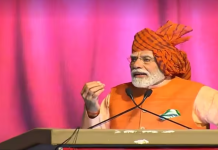After going through the unanticipated lockdowns and massive health crises in the wake of COVID-19, it is quite clear that emergencies can occur anytime without any warning signals. This is the biggest reason why people have grown more conscious about prudent money management and creating emergency funds.
Indraneel Chatterjee, Co-founder, RenewBuy says, “Emergency funds should be created in life to meet any kind of unforeseen mishap- like a car breakdown, job loss, or medical expenses. One should keep aside a sufficient amount, depending on the financial capacity of the individual, which can be utilized during any financial crunch, without affecting one’s investment goals.” Hence, it is quite clear that especially in the post-pandemic era, these funds have emerged as essential tools for all age groups.
An emergency fund corpus is extremely important at any stage of one’s life and it should be kept as one of the top financial goals of an individual. Therefore, the next question is how much should be your emergency fund, and where should you park it?
How much is enough for you?
According to financial planners, usually, an emergency corpus of between 6 to 12 months of living expenses should be accumulated. At a glance, it might look like a large corpus to accumulate, as it is not possible to suddenly put together 6-12 months’ monthly living expenses, separately, therefore experts suggest starting small. For instance, start with accumulating 2-3 months living expenses, and then gradually keep increasing it.
Additionally, note that factors such as the age of a person, number of dependents, and type of work, also determine the corpus. Hence, while deciding the corpus, experts say one should include monthly expenses such as all lifestyle expenses, EMIs, rent, any other fixed expenses that you may have. Arrive getting this number, multiply the same by the number of months to arrive at the corpus required.
Where should you keep your money?
According to experts, After accumulating the emergency fund, industry experts say it should be spread across liquid funds, debt mutual funds, and short-term RDs.
Experts point out one should not keep their emergency corpus in the form of cash or in the bank account – at least not entirely. Try to invest it in a manner that you not only keep it in partial liquid form but also earn decent returns from it.
Having said that, the pandemic has also pushed people to proactively include life and health insurance in their financial preparedness plan, so that they can keep themselves and their loved ones insured and protected against any unforeseen circumstance.
Chatterjee says, “The uninsured segment of people paid a humongous amount from their savings during the Covid crisis. This made people realise the importance of life/health insurance plans, and now they are actively investing in insurance.” In sync with the situation, policies like Corona Kavach were also introduced to cover COVID-19-related illnesses.
He further adds, “One should also understand the significance of availing the right insurance policy as insurance to act as an emergency fund. It helps an individual and his/her family meet specific milestones and emergencies.” Note that the right investment in the right insurance product can go a long way in helping one stay prepared for emergencies in life.
However, even with a health and life insurance policy in place, experts point out that the need for having some kind of emergency fund is necessary.















